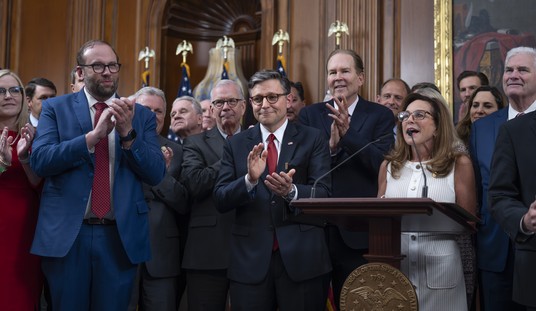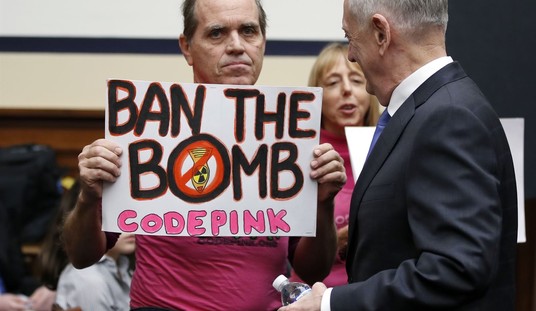On July 16th, 1945 - 80 years ago today - a new sun blossomed over the desert in a remote corner of New Mexico, and the atomic bomb was born, in what became known as the Trinity test. This is a day with enormous historical significance, but it's not a day for celebration, but rather reflection.
Manhattan Project chief, often referred to as the "father of the atomic bomb," J. Robert Oppenheimer, later remarked:
We knew the world would not be the same. A few people laughed, a few people cried. Most people were silent. I remembered the line from the Hindu scripture, the Bhagavad Gita; Vishnu is trying to persuade the Prince that he should do his duty and, to impress him, takes on his multi-armed form and says, "Now I am become Death, the destroyer of worlds." I suppose we all thought that, one way or another
He wasn't entirely wrong. President Truman, on learning that the United States had a powerful new weapon at hand, ordered it used to end the war with Japan. On August 6th, 1945, a U.S. Army Air Forces B-29 bomber dropped an atomic bomb on the Japanese city of Hiroshima. Three days later, on August 9th, another was dropped on Nagasaki. The Emperor, rightly horrified, ordered Japanese forces to surrender. That ended a war that, otherwise, may have dragged on another year or more and, in an invasion of the Japanese homeland, cost millions of lives on both sides.
The History Channel has some details of the test on July 16th:
Finally, on the morning of July 16, in the New Mexico desert 120 miles south of Santa Fe, the first atomic bomb was detonated. The scientists and a few dignitaries had removed themselves 10,000 yards away to observe as the first mushroom cloud of searing light stretched 40,000 feet into the air and generated the destructive power of 15,000 to 20,000 tons of TNT. The tower on which the bomb sat when detonated was vaporized.
The Hiroshima bomb had a yield of 13-16 kilotons - 13 to 16,000 tons of TNT. The more sophisticated Nagasaki bomb had a yield of 21 kilotons. Since then, nuclear weapons have grown orders of magnitude more powerful. As of this writing, the United States nuclear arsenal included (more or less) 1,770 deployed devices and 1,938 in reserve. Modern nuclear devices have yields of up to 475 kilotons, in the case of the W88 warhead on the Trident missile; until this year, the B83 gravity bomb, with a yield of 1.2 megatons, had that title, but the B83 is scheduled for retirement this year.
Read More: Are Nuclear Weapons the Danger? Or Is It Who Controls Them?
SADM: That Time the Green Berets Jumped From Airplanes With Atomic Bombs
Some quotes from other Manhattan project staff who witnessed the Trinity test include:
This is the nearest thing to doomsday that one could possibly imagine. I am sure that at the end of the world — in the last millisecond of the Earth’s existence — the last human will see what we saw.
The effects could well be called unprecedented, magnificent, beautiful, stupendous and terrifying. No man-made phenomenon of such tremendous power had ever occurred before…Words are inadequate tools for the job of acquainting those not present with the physical, mental and psychological effects. It had to be witnessed to be realized.
Finally I could remove the goggles and watch the ball of fire rise rapidly. It was surrounded by a huge cloud of transparent purplish air produced in part by the radiations from the bomb and its fission products. No one who saw it could forget it, a foul and awesome display.
My father always swore to having seen the retired President Truman on television, and when he was asked to comment on some of the B-29 crews' regrets on having taken part in dropping the Hiroshima and Nagasaki bombs, Truman replied, "I don't know why they should feel bad. I'm the one who ordered them to drop the damn things." I've never been able to verify that quote.
Those of us, the Boomers, who grew up during the Cold War were always keenly aware (in no small part because of a constant drumbeat from the media) of the nuclear sword of Damocles that hovered over our heads. But in those days, with the primary adversary being the Soviet Union, there was always the slight comfort of knowing that the Russian people, by and large, loved their children and wanted them to have a world to grow up in. These days, though, we are faced with nations like Iran trying to develop nuclear weapons, not to mention nations like Pakistan and North Korea already having them, and Russia and China growing increasingly unstable and bellicose.
With that Trinity test, the old world essentially ended, and the new began. The world changed. The face of warfare changed. The possibility of humanity being erased from the planet became something we were forced to contemplate. And it all began 80 years ago, today.















